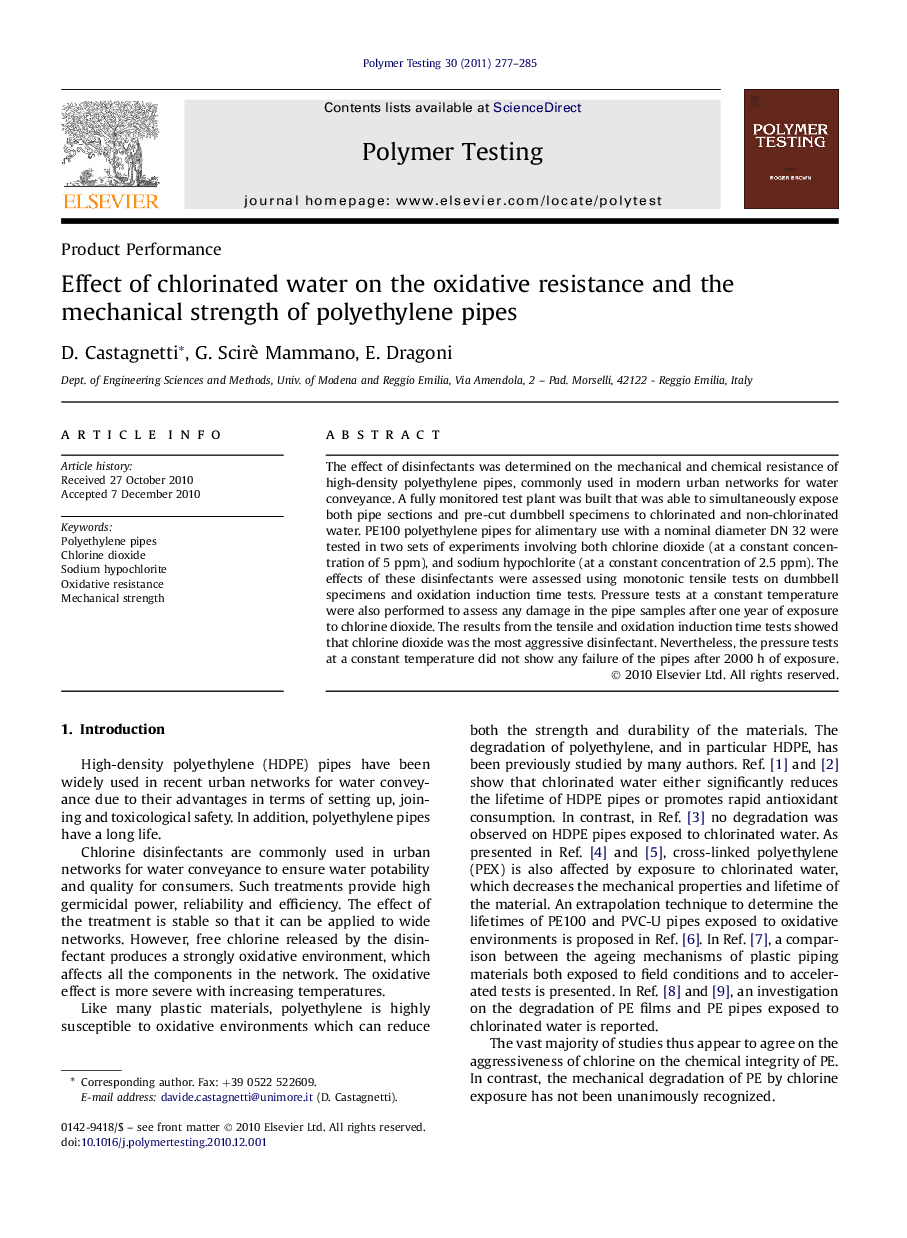| Article ID | Journal | Published Year | Pages | File Type |
|---|---|---|---|---|
| 5207040 | Polymer Testing | 2011 | 9 Pages |
Abstract
The effect of disinfectants was determined on the mechanical and chemical resistance of high-density polyethylene pipes, commonly used in modern urban networks for water conveyance. A fully monitored test plant was built that was able to simultaneously expose both pipe sections and pre-cut dumbbell specimens to chlorinated and non-chlorinated water. PE100 polyethylene pipes for alimentary use with a nominal diameter DN 32 were tested in two sets of experiments involving both chlorine dioxide (at a constant concentration of 5Â ppm), and sodium hypochlorite (at a constant concentration of 2.5Â ppm). The effects of these disinfectants were assessed using monotonic tensile tests on dumbbell specimens and oxidation induction time tests. Pressure tests at a constant temperature were also performed to assess any damage in the pipe samples after one year of exposure to chlorine dioxide. The results from the tensile and oxidation induction time tests showed that chlorine dioxide was the most aggressive disinfectant. Nevertheless, the pressure tests at a constant temperature did not show any failure of the pipes after 2000Â h of exposure.
Keywords
Related Topics
Physical Sciences and Engineering
Chemistry
Organic Chemistry
Authors
D. Castagnetti, G. Scirè Mammano, E. Dragoni,
